Forgiveness and the Franklins
Published by Michael Schuler Dec 8th 2017One woman's ability to let go of anger and forgive after the worst tragedy of her life
Like any other day for the past 10 months Amie Franklin woke up alone.
Next to her bed was a picture of the person she used to share the covers with. She got up and walked past the framed image from her wedding.
She got ready for the day amongst picture after picture of her husband. Ryan with their children, Ryan riding a bike, Ryan fighting fires, Ryan smiling.
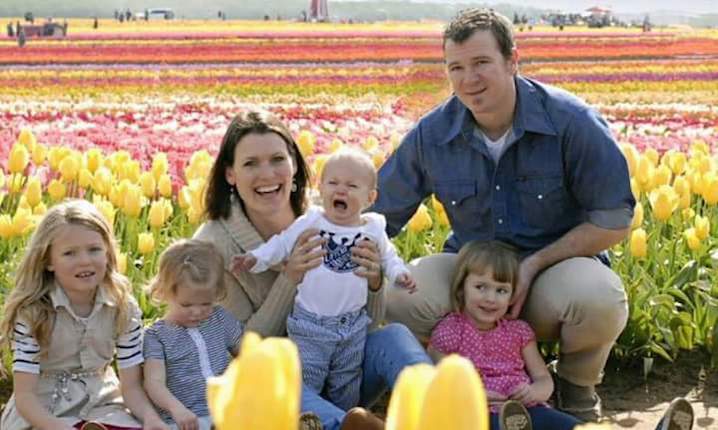
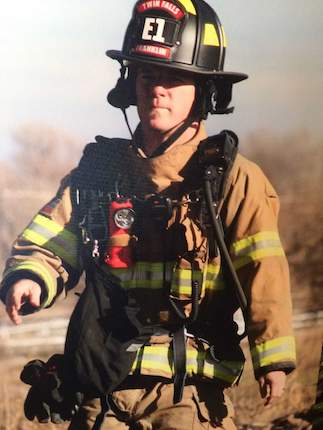
A picture of Ryan looked down at their year-old son’s cradle. As she checked on the baby it mirrored her, gazing down.
The routine was like any other in the painful last 10 months, but today was slightly harder.
She wrestled with her own anger. She stressed about her own authenticity and visualised what the whole thing would look like. For two weeks she was a mess.
“I felt like I was going crazy.”
Her eyes never broke from the road as she drove to the courtroom. The whole time her hands remained on the wheel and her phone tucked away.
She pictured this day over and over, but even as she drove there she grappled with how she felt.
Franklin rolled into the court parking lot. Got out and saw her family, her friends, the lawyer. The prosecutor told her where she would be sitting. It wasn’t at all where she expected. She pictured herself sitting across from this woman and addressing her directly. When the prosecutor told her where she would actually be sitting she was shocked.
So Franklin waited. She sat until the judge came in, briefly stood, then sat again in silence. Finally they asked her to come up.
The waist-high swinging door screeched through the deafening silence of the courtroom. She sat down at the table. Shoulder to shoulder with the woman who killed her husband.
“So I turned my chair.”
“No ma’am.”
The officer answered Franklin’s question if emergency vehicles were coming.
The man stood between her and the gaggle of police cars down the road. Flashing lights blinked in the distance behind his somber face.
The officer had already confirmed a cyclist had been hit, but wouldn’t tell Franklin who it was.
“Is a helicopter coming?”
She knew who it was.
“No ma’am.”
She knew her husband was dead.
Franklin jumped out of her van and fell on the ground and started screaming. She yelled at the officer she had four babies.
“If he just knows I have four kids he’ll change the outcome.”
Franklin picks at paint chippings on her kitchen table as she remembers the day. She remembers sitting in a ditch on the side of the road picking at grass as she waited.
The woman who hit Ryan was down there, and they wouldn’t let Franklin go down to the scene while she was there.
“I asked if I could go punch her in the face,” Franklin remembers. “I feel bad about that at this point, but I just felt like I was so angry, she had taken my world away.”
She sat on the side of the road and called family and friends. She watched as the coroner drove past.
It was unbelievable that this could have happened to Ryan. He was the kind of guy you wanted on your shift no matter what, said Mitchell Brooks, a battalion chief at the Twin Falls Fire Department. Kids connected with him not just as a teacher or basketball coach, but as a mentor, said Kevin Newbry, the superintendent at Lighthouse Christian School. He was Amie’s best friend and a phenomenal father.
Now, finally, she was allowed to see him.
Franklin walked through a debris field of bike pieces. She walked for what seemed like miles. When she finally got to her husband. He was under a sheet, but his hand rest outside of it. The hand with the wedding band on it.
“I didn’t want to just observe a crime scene,” Franklin remembered. “I wanted to be with him.”
She lifted the sheet. He looked like he was sleeping. She layed down next to Ryan. She kissed his face and laid her head on his chest. She cried.
Franklin doesn’t know how long she was there, but eventually she felt like she needed to be done. An officer was standing over her, not rushing her, but monitoring. They never asked her to go, but she felt like the situation only allowed for visitation, and that time was up.
“I felt like it wasn’t my husband anymore, like they had somehow taken ownership of him,” Franklin said.
She told him that she loved him. She tried to take the wedding band on his hand, but his swollen finger clung to it tighter than she could pull. She would get it later.
She covered her husband back up with the sheet and walked away.
“It was excruciating.”
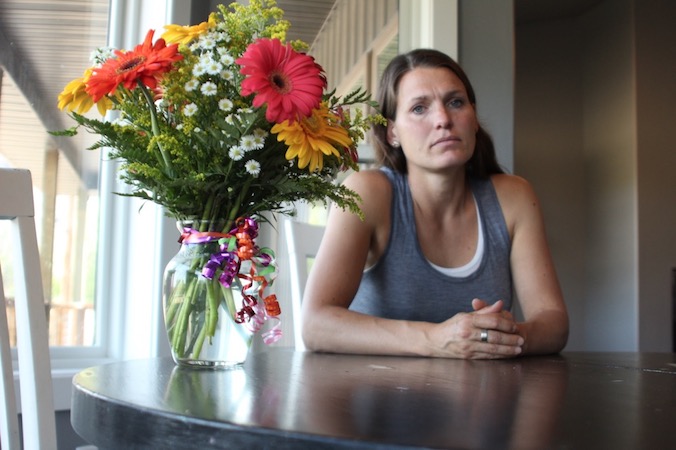
Forgiveness is the hardest virtue on the planet.
At least that’s according to Richard Ensign. He’s studied forgiveness for more than 30 years and written multiple books on the topic, including “Forgiveness is a Choice,” “The Forgiving Life” and “The 8 Keys to Forgiveness.”
Ensign points out it’s easy to love those who love you and it’s easy to be kind to those who are kind to you, but what makes forgiveness difficult is that you are being good to those who are not good to you.
“It’s extremely difficult,” he said.
What makes forgiveness more difficult according to Ensign, we are rarely coached to do it.
“When people aren’t good to us, the message we continually get is, stand up to them, fight for your rights, don’t let them dominate you,” Ensign said.
He says we should be coached not to let it go and to see the person who hurt you in a different way. That gives you the chance to get rid of your anger, which leads to dropping your resentment, then your rage or hatred.
“When you get rid of all these poisons within you, can actually end up healing you,” Ensign said. “We don’t realize that.”
Ensign says that isn’t talked about enough in society, communities or schools, so people often don’t develop that skill. Yet like any virtue, forgiveness is part of human nature.
“I think we all have the capacity to forgive,” he says. “We don’t always do it.”
Through Ensign’s research at the University of Wisconsin he found a pathway to forgiveness: Admit you’ve been treated unfairly, realise you can get angry, then search for a lifeline.
“Forgiveness is often that,” Ensign said.
But it’s a process. He equates it to getting in shape. You can’t just decide you want to be in better shape, finish your bag of potato chips, walk around the block and be done with it. It takes time and work.
Like what Amie Franklin did.
The lawyers took care everything. There wouldn’t be a trial, something Franklin was grateful for, but the whole legal process was still so stressful.
Through it all she really didn’t see the woman who killed her husband. She didn’t really want to think about her. She was focused with her own family.
She did feel compassion for the woman. Her name was Holly Winette. She had a family of her own. She told police she fell asleep at the wheel.
Comparing her situation with Winette’s, Franklin would rather be the person who lost a loved one than take one away from someone else.
“That would be a much harder struggle for me,” Franklin said.
Franklin didn’t have to address Winette the day of the sentencing, but she felt like she owed her that, to let her know where she was coming from.
As Franklin sat with Winette, David Odell watched from the benches in the courtroom. Odell met Ryan in college and the two were best friends. He drove through the night with another one of Ryan’s friends to be at the sentencing.
He knew Franklin wanted to communicate love and forgiveness instead of vengeance, she had talked to him about that over the past few weeks. However, he also knew that he struggled with her anger at the situation. “Rightfully so,” he said.
In the weeks leading up to the sentencing, Franklin spent her time praying. She wanted God’s words to come out. She just wanted to be the vessel, and she wanted God to speak through her.
“Honestly I really feel like that happened,” Franklin said.
Sitting next to Winette in the courtroom was awkward. The two hadn’t interacted. They never spoke. Franklin never saw if there was any remorse from the woman who killed Ryan. But now here she was, inches away, trembling wish sadness.
Franklin was grappling with how she felt up until the moment she spoke. She had a paper bearing what she wanted to say, but didn’t look at it when the time came. Franklin just spoke.
She told her she was working towards forgiving her, she didn’t hate her and she was praying for her. Franklin wanted her to heal as well.
“I don’t desire for you to have sleepless nights, or relive the events as I often do, I want you to find the grace that God has so freely given to all of us.”
Winette started to break down while Franklin was talking. Something came over Franklin’s heart. She hugged the woman.
“I just felt like she needed comforting and I was there and so I wanted to comfort her,” Franklin said.
After Franklin spoke she stood back up, and walked back to her place behind the waist-high swinging door. Back away from the woman who killed her husband, back away from the criminal proceedings.
She sat down, looked at the paper she had prepared and wasn’t sure if she said anything on it. She didn’t really remember speaking.
“Absolutely it was me, but it was God working through me,” Franklin said.
Her words hung in the courtroom. It rang through Ryan’s parents as they gave testimonies. It rang through the defense attorney as he paused to reflect during the closing statements on the amazing display of forgiveness Franklin had put on. It rang through Odell and many other sitting in the courtrooms ears.
“After Amie spoke it was stunning, it was so powerful and beautiful,” he said. “She knows there’s more to life than what happens on this side.”
For Franklin, it was a relief to walk away from that courtroom. It was a relief to speak to Winette. It was a relief to address their pain.
“It was huge for me, it was a healing thing for me.”
There wasn't anything to gain from the trial, she couldn't get her husband back. Now she could move on to completely focusing on her family, her faith and remembering Ryan.
She didn't desire further hardship for Holly. Franklin just had to focus on hers.
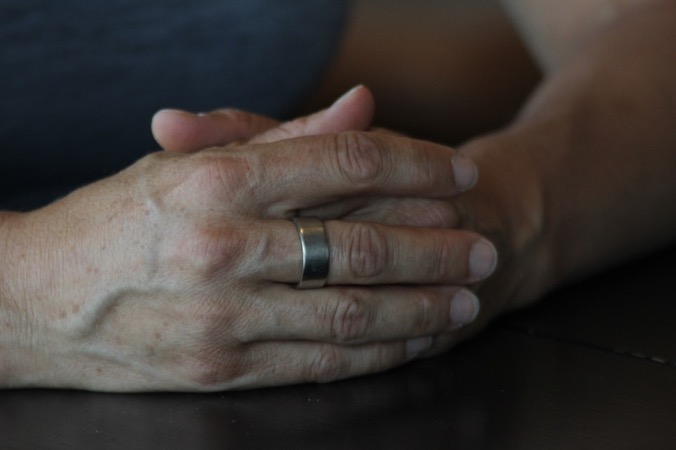
Time has stood still for Amie Franklin since the crash. She’s been dealing with her own grief and trying to manage the grief of her children.
“That’s been a big challenge,” she said.
She’s focused on celebrating Ryan and her faith. She doesn’t think of Winette often, but she still struggles with how she feels about the crash.
Richard Ensign says that’s normal with forgiveness. It’s simply not about excusing or forgetting the wrongdoing. After long and short periods of time anger or other emotions don’t always go away completely.
“It goes to a manageable level,” Ensign said.
As he hears about what Franklin did in court earlier in the year he’s impressed. He says most people would not have come forward like she did, especially not within months.
He says it demonstrates a trait of forgiveness he’s studied. Oftentimes he asks people to give a gift of some kind. Franklin’s testimony was that.
“She was relieving (her) heart from the kind of guilt (she) might carry around,” Ensign said.
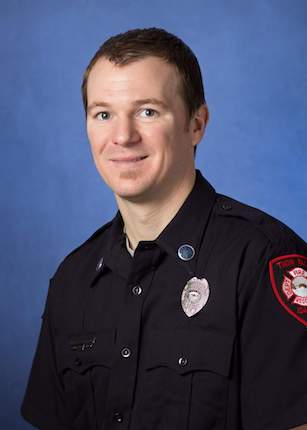 Franklin points to her faith for her words that day. She points to her faith for what got her through the painful year that followed.
Franklin points to her faith for her words that day. She points to her faith for what got her through the painful year that followed.
Franklin used it to navigate an advertisement campaign against distracted driving, she used it through the trial and she’s used to to help her children through the loss. Every step of the way she wished Ryan were there to give her advice as she was so accustomed to through more than a decade of marriage.
“We’re getting there,” Franklin said. “He was worth missing, so I never mind crying about him because he was amazing, and he was truly worth every tear. He was a great guy.”
